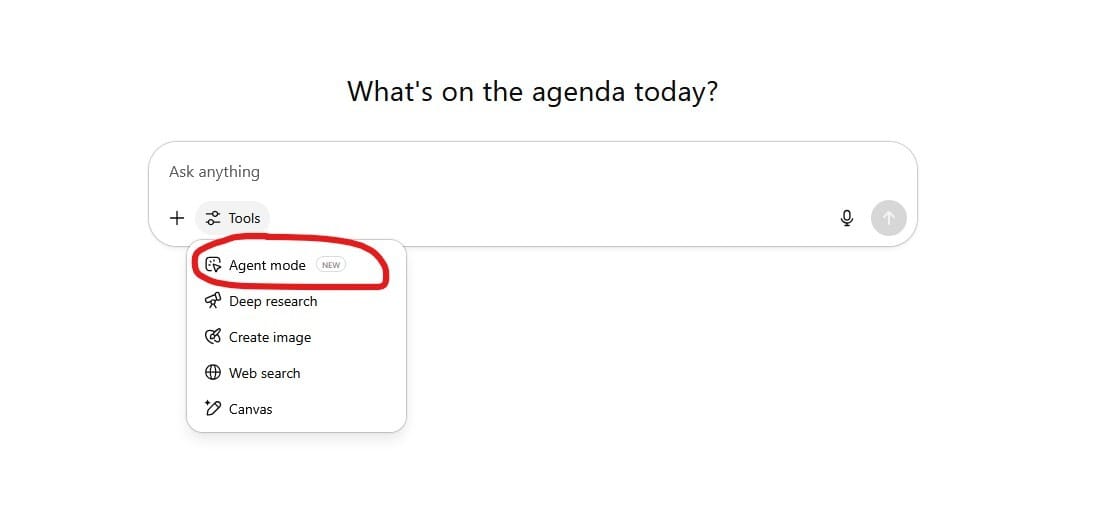Good morning future-focused leaders.
After last week’s newsletter where I touched on job stability, a reader asked whether I believe the rise of AI could lead to a fairer economy—one where the benefits are more evenly shared, rather than concentrated in a few hands. We had a good exchange—and then I noticed that The Economist ran its cover story on exactly this.
The article highlights a major shift: AI is moving beyond task automation into idea generation. That could supercharge growth. But the deeper concern it raises is instability—between those who own and deploy AI at scale, and everyone else.
My view is that before AI brings stability, it will bring turbulence. As job tasks shift and career paths are reshaped, the role of work as a social anchor will weaken. This will place pressure on the institutions built around it—particularly education and employment systems, with political stability close behind.
What else we cover this week:
ChatGPT Agent Mode now live for advanced task automation
AI conversations aren’t legally confidential, warns OpenAI CEO
China’s humanoid robot swaps its own batteries
92% of users trust AI answers without checking
Study explores AI agents in redefining elderly care
New AI screening tool detects early signs of Parkinson’s
For tech developers: Cohere Labs opens Catalyst Grants for social impact AI projects
LATEST DEVELOPMENTS
READY TO USE TODAY
🤖 Let Agents handle the admin: A practical turning point for AI

In brief: I wrote about it in this newsletter a couple of months back, but this week, OpenAI rolled out a fully functional ChatGPT Agent, an AI system that can research, plan, and act using its own virtual computer. You can activate it by selecting “Agent Mode” in ChatGPT’s tools menu (see image above). (Please note this is only available to paying users at this stage.)
The details: You can now ask ChatGPT to handle requests like “look at my calendar and brief me on upcoming meetings,” “plan and buy ingredients to make breakfast for four,” and “analyse the three competitors who are the closest to us by distance and create a comparison slide deck.” ChatGPT will intelligently navigate websites, filter results, prompt you to log in securely when needed, run code, conduct analysis, and even deliver editable slideshows and spreadsheets that summarise its findings.
The Agent pauses to ask permission before any sensitive action—like logging in, sending emails, or making purchases.
It’s good for workflow-heavy tasks that mix web research, structured output, and light reasoning.
However, please keep in mind slideshow exports are clunky, login-required tasks need your input, and it occasionally needs a nudge mid-task.
Practical uses:
The Agent can prepare you for meetings by scanning your calendars, accessing your files, and generating powerpoints.
Conducts in-depth research and produces editable reports. I tried it by asking it to put together a list of 10 residential aged care facilities by order of driving distance from a specific address. You can view the video and the results here.
Plans for meals by choosing recipes, shopping for ingredients, and managing dietary plans. In this example, a twitter user asked the agent to do their food shopping for them.
Builds financial models, updates spreadsheets, and projections. Watch this video for a further explanation, and many more applications and ideas.
Why it matters: The Agent mode introduces a functional shift in how operational tasks can be executed. It allows routine workflows—such as data collection, document preparation, and preliminary analysis—to be delegated to an AI system that can operate across multiple tools with minimal input. This reduces reliance on manual data entry and task-switching. While it still requires supervision for secure actions and outputs often need formatting adjustments, operations teams managing high volumes of repetitive work may be able to streamline processes.
QUICK HITS
⚖️ A reminder that AI chats aren't legally confidential. Sam Altman, the CEO of OpenAI, recently confirmed that conversations with ChatGPT aren’t protected by legal confidentiality. Speaking on a (very) lengthy podcast, he noted that AI interactions don’t fall under laws like attorney–client privilege. That means, in legal cases, your (and your team’s) messages could be subpoenaed as evidence. An important reminder as to why we should not share confidential information with commercial models.
🤖 Coming out of China, there is now a humanoid robot capable of autonomously swapping its own batteries! This means it can operate 24/7, offering a major advancement for continuous autonomous operation in customer service roles (and I can see practical applications in nursing homes in the near future.) I’ll admit it though, the video is a little bit unsettling.
🚧 About 40% users admit that they trust AI Overviews in Google Search without checking the source material. This report by Exploding Topics in the US examines the disconnect between users’ low trust in AI-generated online content and their continued reliance on it, revealing concerns about accuracy, bias, and engagement behaviours. (By the way, I hope all the readers of this newsletter, we belong to the majority who checks!)
📊 A new study titled Redefining Elderly Care with Agentic AI: Challenges and Opportunities examines how AI agents with goal-directed reasoning can augment healthcare delivery, cognitive stimulation, emotional well-being, and independence among older adults. The areas explored are companionship, personalised health monitoring, cognitive stimulation, and smart-home control, while certain risks are also covered.
💬 Researchers from the University of Rochester in New York said they have developed an AI-powered screening tool that can help people assess whether they are showing signs of Parkinson’s, the world’s fastest-growing neurological disability. The web-based test asks users to recite two short sentences using all 26 letters of the alphabet. The AI tool then analyzes and assesses speech patterns for subtle signs of Parkinson’s, with almost 86% accuracy.
➕ And something for the tech developers on our mailing list: Cohere Labs introduced the Catalyst Grants Program, providing free access to its models to teams tackling challenges in areas like education, healthcare, and climate. Maybe an opportunity for a new project in aged care?
I'm not here to hype AI. I'm here to help you understand it, use it, and learn as it evolves. Whether you're testing a new tool, using it to lighten your workload, or keeping pace with the changes, I hope you found something here worth your time.
Feel free to forward this to your network or share it with your team.
See you next Tuesday,
George

I'd love to hear your thoughts—feel free to connect with me on LinkedIn or check out my website to learn more about my work.


